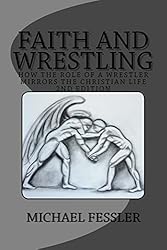The idea of following God is a mysterious concept. In fact, it can be rather confusing at times. We grow up in a world two thousand years removed from the early church. And within that long period of time, the church has developed a number of systems relative to what discipleship (following Jesus) looks like; much of it consumed in methods of moral fortitude alongside consistent prayer and church attendance. The problem, however, is that new followers in their pursuit of this find themselves walking into (and through) the frequent pathway in the Christian faith of religious legalism. There are many things wrong with this phase of the Christian walk that so many followers pass through, not limited to a blurry and distorted Christian perspective and the potential for spiritual fatigue. As human beings engrossed in the world of the present, we find it easier to transport things into our own system(s) of understanding. Jesus’ description of discipleship as “loving God and loving others” seems to us too vague. We feel far more comfortable with something tangible rather than relying on this seemingly formless suggestion.
While most Christians enter into some form of legalism very shortly after their entry into the faith, my journey through it didn’t commence until my young adult years. When I was much younger, following Jesus was simpler it seemed. But of course, as we grow older, the simplicity of life becomes very complex – partly because we make it this way. We all develop our own philosophies of life, and we all embrace the many systems inherent in our world. We’re obviously not all philosophers, but we do nonetheless approach life with some limited understanding of logic and systematic ways of journeying through life. We all find ourselves adopting methods in which to measure our effectiveness in tasks as well as our “goodness” as human beings. For instance, when it comes to the Christian faith, and because of our desire to take something somewhat obscure (like faith) and turn it into something understandable, we develop a method in which to measure our “success” as Christians. This is how the list of “dos and don’ts” transpires. And this very list is what bolsters religious legalism.
My journey through this emerged when I began to look at my life, unsatisfied and feeling guilty about my failure to live a life of moral consistency. Simply put, my step into religious legalism was not born of selfish ambition. My step into it was brought about as a result of my deep love for God and my desire to live more faithfully. The problem was that I took this wonderful love for Him, and the desire to more earnestly follow Him, and I turned it into something disfigured. In other words, I traded in the mysterious grace of God for something I could understand and keep a tally on. I inadvertently attempted to take salvation into my own hands.
As I developed my own system of following Jesus, I made sure to rid my life of any alcohol, tobacco, profanity, and of course, pre-marital sexual relations of any kind (even passionate kissing was walking the line). And it’s not that some of these things weren’t dismissed rightly. The issue was that I became so infatuated with the system I had built that I lost sight of why I was really doing these things in the first place. For goodness sakes, I even began to question if I was sinning against God by exceeding the speed limit when driving my car. What’s worse is that I started to enforce my system of following God on others. And as a result, I hurt my relationships with some dear friends and family members. I kicked a friend out of my car and left him on the side of the road after he admitted to falling into drunkenness the night before, I cast another out of the faith when he engaged in pre-marital sex, and I furthermore questioned the authenticity of a friend’s faith when he voted for a liberal politician. It was all very sad and a time in my life that I deeply regret. It was only when I stepped outside my self-infused system, and humbly embraced God with my heart, that I realized what I was doing. My system was wearing me out. Not only did I feel farther from God than I ever had before, but I equally felt the same distance from people.
When I finally started reading the bible with an open heart and mind, when I started to grasp, even minutely, the vastness of God’s grace and love, when I pleaded with Him to change my heart and soul and to open my eyes to see people the way that He does, only then did I begin to live faithfully in the truest sense of the word. I was “loving God and loving others”. My openness and dependency on God was accomplishing my desire to love Him more fully. My willingness to allow Him to change my heart and mind in how I view and in how I treat people was accomplishing my aspiration to faithfully follow Him. This doesn’t mean that I was free from mistakes. In reality, I probably made the same number of mistakes I did before. But my heart was being changed in a beautiful way, and I was finally following Him in the most perfect yet imperfect way that I knew how. God’s grace carried new meaning, my love for Him increased, and my perspective on what it means to follow Jesus was illuminated in a way that brought peace to my soul.
God cannot be fit into a system. And Following Him cannot be fit into a system, either. As simple as it may sound, being a follower of Jesus is living a life of openness to His work in your life, and a willingness to be transformed by Him. It’s truly a mysterious relationship.
One day, while sitting at the kitchen table, my daughter, Delaney, handed me a picture. With a beaming smile, she said, “Daddy, I made this for you.” The picture was nothing more than a blob of colorful scribbles. By anyone’s standards, the picture was a complete mess; but I loved it! It was the most beautiful picture I had ever seen! And when I received the picture and experienced her joy in giving it to me, I thought about God. Perhaps my life – perhaps our lives as followers of God – is comparative to this. Each of our lives (and deeds) is merely a picture filled with scribbles. And yet, when we hand our lives to God, He feels as happy as I did when I received Delaney’s picture. Nothing we do in this life is worthy of God’s grace and salvation. What matters is that we spend a lifetime (however long it may be) in pursuit of His love. In the end, it’s all colorful scribbles. But in God’s eyes…it’s perfect.

Michael Fessler is a writer, speaker, and the author of Faith and Wrestling, They’re Just Not Interested, and The Wrestler.




